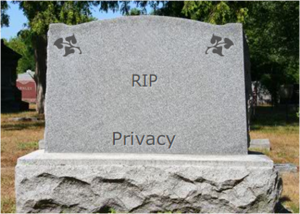By Doug Stephens
Recently Facebook announced its intentions to develop what it calls the Open Graph, a means of connecting data about an individual based on their choices, tastes and preferences by profiling their social networking and web activity. The idea is to link all of this data and then bring it to a central point; that central point being Facebook, of course. In doing this, Facebook would be capable of graphing an intricate, accurate and ever-evolving picture of the individual consumer. 
The strategy involves a few things. First, they are allowing partner sites to interface with Facebook. When a user comments on an article (on CNN.com for example), it would be shared with their social circle on Facebook and in the process, the fact that the user visited CNN.com would be noted and added to their graph. Second, they’re going to share the “like” button programming code so that any business can place the button on their site to create a social-link back to Facebook. In the process, Facebook gathers more data about that user’s preferences outside of Facebook itself. Lastly, they’re going to break from the current protocol of not storing or caching user data for more than 24 hours. They didn’t give any details about how long they intend to store this information.
The open graph is the Holy Grail of marketing
The point in doing all this, according to Facebook’s founder and CEO Mark Zuckerberg is to “create a Web that’s smarter, more social, more personalized, and more semantically aware.” In other words, to bring all our disparate likes and dislikes together to form a unique profile of who we are and in doing so, allow the web to deliver data that’s more tailored to our needs as consumers. The subtext however is obvious. By holding the keys to the open graph, Facebook literally becomes the centre of the marketing universe and the preeminent channel for any brand that wants their message to reach consumers with unprecedented timeliness and relevance – the issues that have always been the greatest challenge for marketers.
Reaction to this announcement ranged from enthusiasm to anger. While some viewed it as a positive step toward a more connected and meaningful internet experience, others saw it as yet another step in the eradication of privacy as we know it.
In fairness to the naysayers, anyone who’s been phished on Twitter or Facebook can attest to the fact that the web can be an ugly place when you share the right information with the wrong people. What’s particularly disconcerting is the speed and scale of the damage that can be done when your information gets compromised. There’s no question that we need to be vigilant in our pursuit of improved safeguards to this sort of activity.
Privacy is outdated
Having said all that, I believe that the idea of privacy is completely outdated. To be honest, it’s a nostalgic notion that we’ll describe to our grandchildren who will no doubt wonder why it mattered so much to us. They may even speculate as to what we did that was so weird or shameful that we didn’t want other people to know about it.
And what privacy do we really have anyway? We live in a world where your picture can be taken hundreds of times in the course of a normal day. Our cell phones are like homing beacons, tracking our whereabouts at all times. Our credit card is a trail of digital breadcrumbs a hundred miles long. And it’s now routine to Google someone before you meet, hire or do business with them. Our lives are anything but private. Good lord, talk show hosts and golfers can’t even keep a good old fashioned affair under wraps. So why should we care about handing over more of our personal information to institutions and companies? It’s not about privacy.
It’s really about trading information for value
Traditionally when we give companies information, we don’t get any real value in return and if we do get anything, it’s usually just generic offers, junk and noise. Life doesn’t become easier or less complex – just the contrary. It becomes filled with more information that we don’t need.
However, imagine if we could move to a state where the marketing messages we receive are almost completely relevant and timely. If virtually every piece of direct marketing you received made perfect sense with respect to your tastes and preferences and needs at that moment. If the advertising you were sent matched your life-stage and interests perfectly. If even new products that you’d never heard of made sense with respect to your unique needs and wants as an individual.
Would you be willing to trade a little privacy to get to this point? I know I would.

